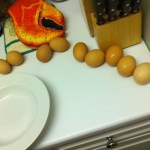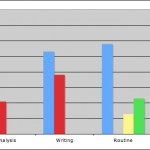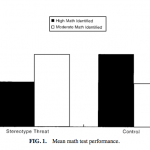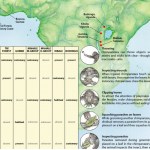Culture
tags: The Secret Powers of Time, time, hedonism, future orientation, education, personality type, popular psychology, society, culture, lucifer effect, teenage pregnancy, Philip Zimbardo, Royal Society of Art, RSA, streaming video
In this video animation, Professor Philip Zimbardo conveys how our individual perspectives of time affect our work, health and well-being. Time influences who we are as a person, how we view relationships and how we act in the world.
Learn more about RSA Animate.
tags: Stephen Fry on Catholicism, Intelligence Squared Debate, religion, catholicism, Catholic Church, poverty, sexuality,homosexuality, AIDS, HIV, condoms, pedophilia, child rape, culture, Stephen Fry, streaming video
Stephen Fry provides his very articulate and thoughtful opinion on Catholicism and the Catholic Church at the Intelligence Squared Debate.
Science is cooking done in a lab. Mixing carefully (or not so carefully) measured components, heating, cooling, observing phase transitions, exploring the behavior of animal and plant proteins, exploring the properties of different chemicals, slowly changing variables to optimizing procedures. Often, feeding bacteria has a lot in common with feeding people, and I have to admit that freshly autoclaved yeast media smells delicious.
Said another way, cooking is science where at least you can usually eat the failures. My fiancé and I have been failing at making soft-boiled eggs for quite some…
tags: Walk-Through of NYC's American Museum of Natural History, museum, natural history museum, AMNH, American Museum of Natural History, NYC, New York City, culture, edutainment, streaming video
This is a rather nice video with a home-made feel to it. It presents a quick view of the American Museum of Natural History in New York, starting on the subway platform (filled with lots of beautiful tile art, all of which I've photographed and shared on my blog). (I noticed that they seem to have finished refurbishing their Indians of the Pacific Northwet exhibit).
The AMNH is a scientific…
Before Zombie Day comes to a close, I want to do a little braaaaaaaaaaain dump on where zombies actually fit into the scientific landscape (and to thank Joseph Hewitt for the amazing art he provided for all of us. As a huge Evil Dead fan, I especially appreciate my copy of the Necronomicon. Groovy.)
My colleague Lee Billings, with whom I have killed literally tens of thousands of zombies, and I started the day with a discussion of the connection between zombies and science, which took us to the roots of modern-day zombie-dom. It seems pretty clear that word and the basic concept comes from…
Last week, I asked on twitter, and then on the blog, about peoples' preferences for listening to music while doing various types of sciencey work, and conducted an informal survey.
Today I'll give you the (entirely unscientific) results, and in a few days I'll share what research has to say about music and work productivity.
Fifty three scientists (or scientists-in-training) completed the survey. I had predicted that music would be preferred in general, but that as language demands of the task increased, music preference overall would decrease. Since I'm doing this at home and don't have SPSS…
In the recent articles, blog posts, and comment threads about possible biological reasons for the continued gender disparity in tenured math and science faculty positions, the discussion seems to be divided between two groups: those who emphasize the social and cultural aspects involved in gender and intelligence, and those who emphasize the scientific evidence of standardized test performance. The science team rails against "political correctness," claiming that by questioning the merits and motives of scientific hypotheses of differences in innate intelligence between different groups of…
Another day, another article about how women are biologically inferior to men when it comes to high-level math and science. The fact that this one comes from the New York Times Science section, a newspaper I typically respect very highly, is all the more tragic and frustrating. I don't have time today to write with as much depth and ferocity as I would like to, but I want to just say that I find it outrageous that the New York Times would publish something so obviously sexist and one-sided about such a complex, nuanced, and important topic under the headline "Daring to Discuss Women in…
The World Science Festival starts today in New York City with tons of exciting events from BioArt to The Science of Star Trek and all sorts of great stuff in between! If you can't make it to New York there's also a twitter page and a blog here on ScienceBlogs accompanying the event that you can follow along with, and I had the chance to write a post over there about how I got into science as a kid. So go check it out! "What if Science Were Like Sports?" Here's a little teaser:
I'm realizing that perhaps in yesterday's post I took everyone's love and understanding of postmodern feminist theory for granted so I'm going to start a little series of posts that I think will slowly introduce some of the issues that I spend a lot of time thinking about and hope that other people will too. Today I'm going to jump right into it by posting the essay I wrote for a horrible class I took about science and religion called Belief Options for a Practicing Scientist. The assignment was to write a five page essay on what the best belief option for a scientist is and why. I think that…
I love this quote from the XKCD blog:
The role of gender in society is the most complicated thing I've ever spent a lot of time learning about, and I've spent a lot of time learning about quantum mechanics.
Many scientists try very hard to de-emphasize this complexity, trying to reduce "human nature" down to parts and genes and behaviors that can be explained by evolutionary mechanisms, by hormones, by genetics. It's not nature vs. nurture and it's not just male and female, it's nature and nurture and infinite variations along a culturally and biologically mediated gender continuum. By…
tags: travel, culture, Suomenlinna, Helsinki, Finland, cities, photography
Helsinki Mereltä Nähtynä.
Photographed from the ferry as it returned to Helsinki from Suomenlinna in Finland.
Image: GrrlScientist, 20 May 2010 [larger view]
Canon SX100 IS.
Confessions of a Community College Dean: Thoughts on DIY U
"Eleemosynary institutions have real and serious flaws, but they exist to empower the weak. They are necessary to empower the weak. If you rend them asunder, you will expose the weak to the predations of the strong. This is so fundamental that I'm surprised it even needs to be brought up. If it weren't scandalously unethical, I'd propose an experiment: take two sets of kids who barely got through a weak school district. Send one set to the local community college, and tell the other set it's free to educate itself under digital…
tags: Katusoittaja, busker, travel, culture, Kamppi, Helsinki, Finland, image of the day, photography
Katusoittaja
Photographed in the Kamppi neighborhood of Helsinki, Finland.
Image: GrrlScientist, 18 May 2010 [larger view]
Canon SX100 IS.
What is culture? One simple definition might be: a distinctive behavior shared by two or more individuals, which persists over time, and that ignorant individuals acquire through socially-aided learning.
There are at least four different ways to learn a particular behavior or problem-solving strategy. That is to say, there are four different ways to learn. The first is social facilitation, in which one individual does the same thing as the demonstrator at the same time. Essentially this is a situation of on-line matching of motor actions. For example, I might learn the steps to a complicated…
Unlike many of my colleagues, I'm not really interested in the whole "science vs. religion" thing, but I do want to point out the very thoughtful analysis of genetic engineering and synthetic biology by the Church of Scotland's Society, Religion, and Technology Project. On GM food, they write:
The official scientific and economic reports support the view of the 1999 Assembly, that GM is not a simple 'yes or no' issue and must be taken case-by-case, weighing up many different factors. Theologically, SRT has found no convincing reason to say it is a wrong act to transfer genes into a crop from…
I've been busily rubbing all sorts of things on bacterial growth plates after all the great suggestions I got yesterday. I want to present the data from the first big experiment suggested by JerryM, who wondered what kind of bacteria would be present on my hands immediately after washing them and then every thirty minutes after that until the next washing. My hypothesis was that there would be a small number of colonies on the plate I touched right after washing, and then steadily growing in number over time. I thought this would especially be true considering that I spend most of my time…
Commenter JohnV asked me whether I had let any of my silkworms crawl on an LB plate (what microbiologists use to grow colonies of bacteria) to see what kind of bacteria is living on them in case I ever suffer from catastrophic experiment contamination. I hadn't thought of what kind of bacteria could be living on my silkworms (we are thinking about what kind of bacteria live in their digestive systems that help them digest leaves) so I tried it out! I let one of my wormies crawl on a plate, and I touched one with my relatively clean fingers as a pseudo-control.
I let the plates incubate at 37…
My semester in MIT's course on Documenting Science Through Video and New Media has drawn to a close. I've had a wonderful time and learned a lot about how films and science are constructed by different people in different times for different reasons. Most of all I've learned about how challenging it can be to put together an interesting narrative and present a point of view while at the same time ensuring that the science being explained is honest and clear to everyone. I've recently gotten the chance to watch two great recent science documentaries outside of class, Naturally Obsessed and…
As James Nicoll is fond of saying, context is for the weak. So here's a context-free poll regarding the reporting of election results:
Releasing a rank-ordered list of candidates with vote totals after a contested election is:online survey
If you'd like to explain what context you might imagine this to have in the comments, that could be fun to see.






